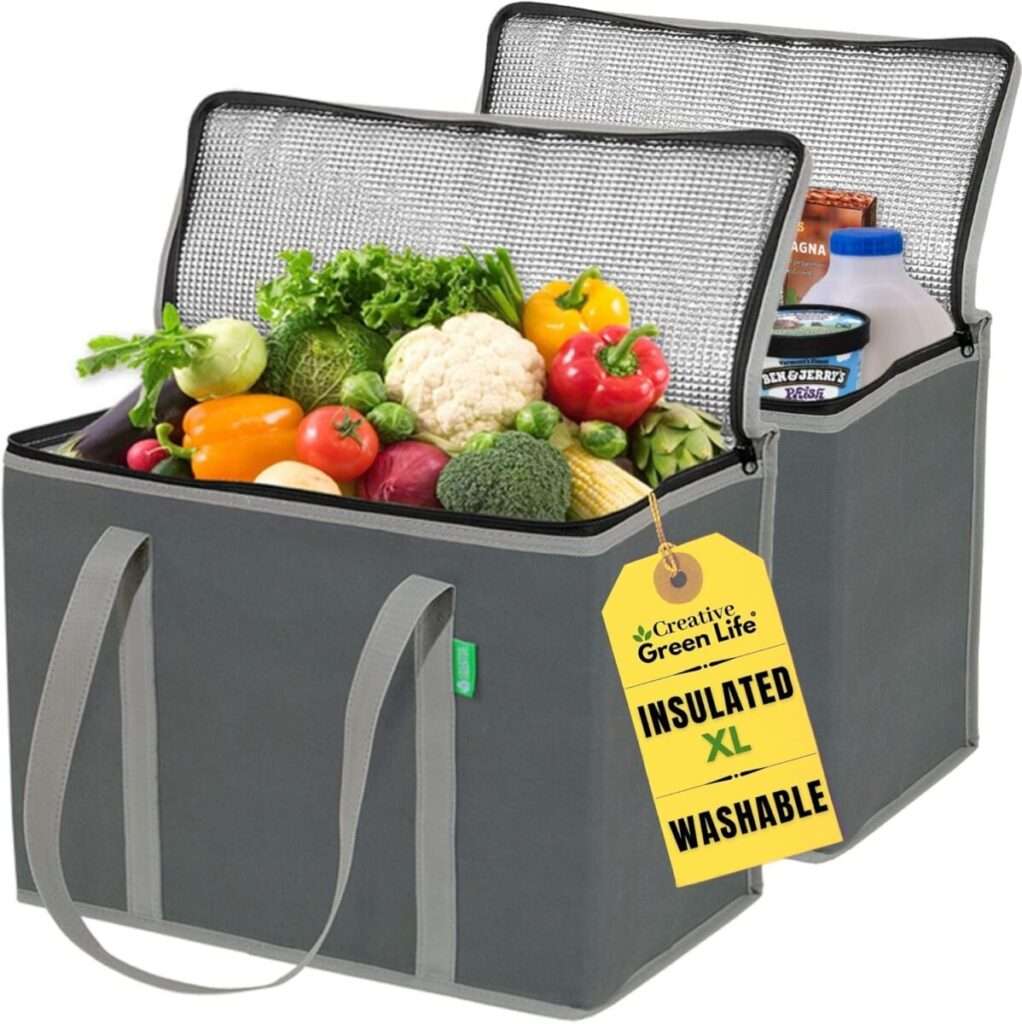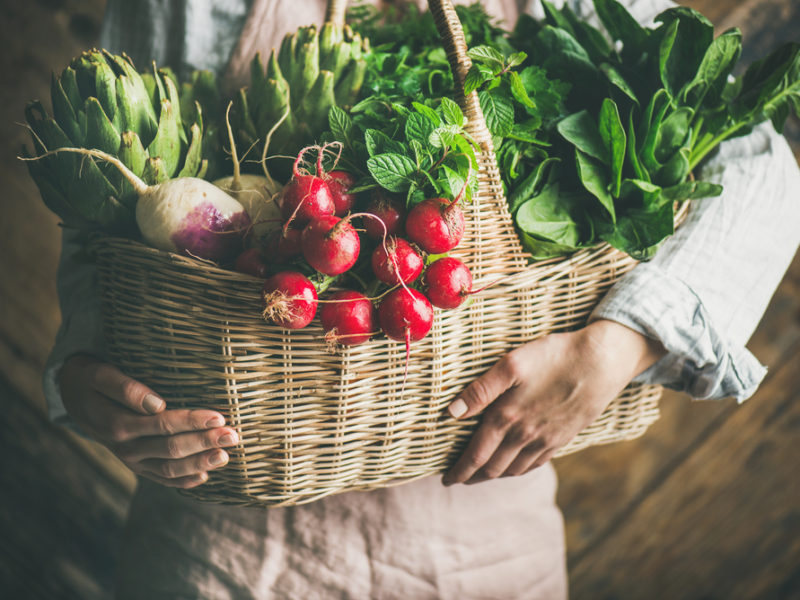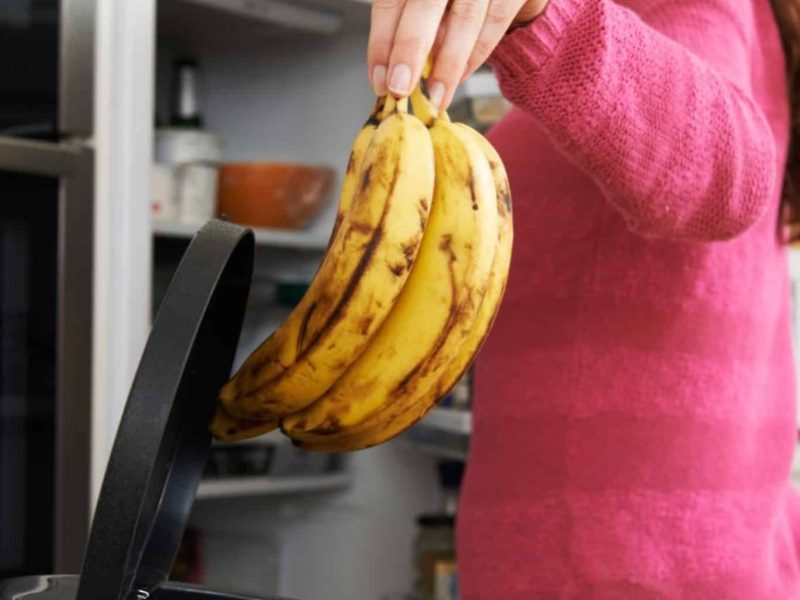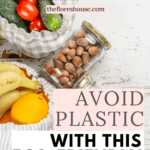Say goodbye to single-use plastics and hello to plastic-free groceries on your next food run with this eco-friendly shopping list!
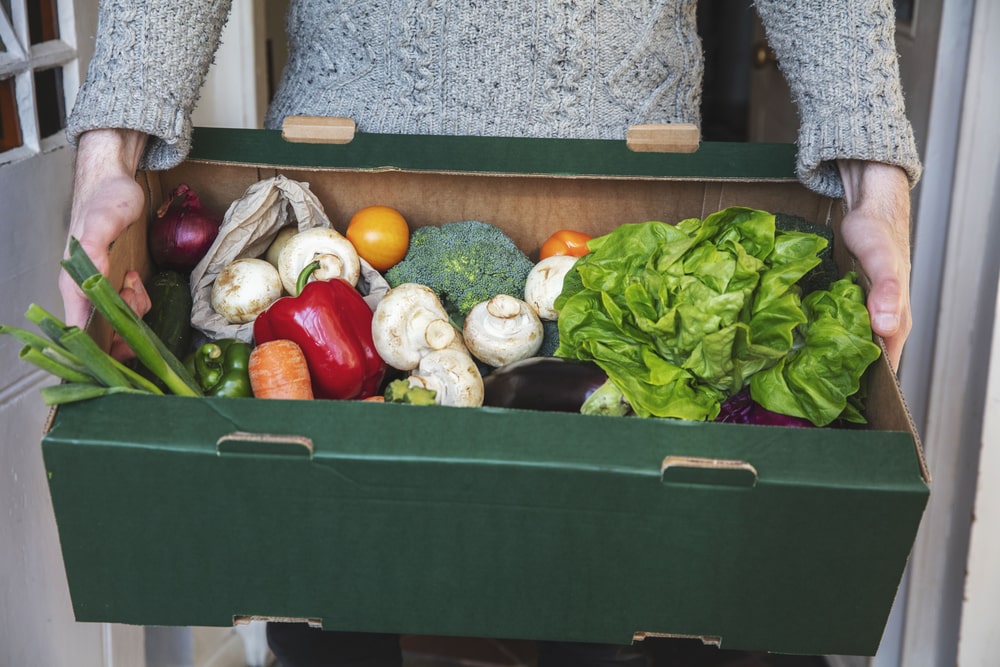
This post may contain affiliate links, which means I can receive a commission from any purchase made from the links. As an Amazon Associate, I earn from qualifying purchases. See the disclosure policy here.
How often have you left the grocery store with bags of plastic-wrapped foods? Most likely, the answer may be always. So, how do we shop for plastic-free groceries? One effective way to minimize your environmental impact is to say goodbye to plastic-wrapped groceries and hello to real, whole food!
While eco-friendly shopping can be overwhelming initially, this eco-friendly grocery list offers simple steps to avoid plastic products and learn how to shop more sustainably.
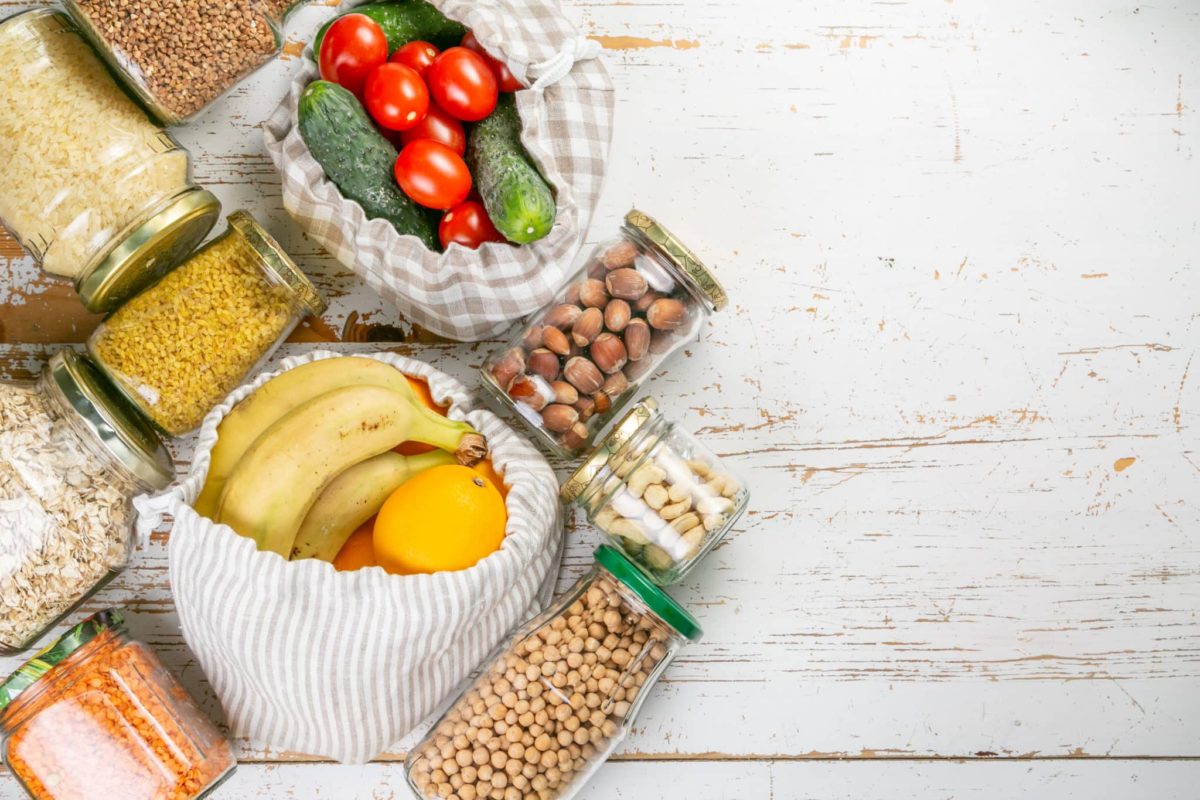
This post is all about how you can help make less waste by buying plastic-free food.
Maintaining zero waste habits in your daily life can seem daunting, especially if you have the busy schedule of an entrepreneur or work from home. However, you can incorporate these principles into your shopping routine without too much extra effort!
Embarking on a zero-waste lifestyle might feel like a mountain of a challenge, especially for entrepreneurs and home-based workers juggling a myriad of tasks every day. The good news? Adopting sustainable practices into your routine doesn’t have to add to your workload.
We understand that your time is precious, yet so is our planet. That’s where our Eco-Friendly Grocery List comes into play. Thoughtfully designed with the busy bee in mind, this list is your secret weapon against the unnecessary plastics and waste that often sneak into our shopping carts. It streamlines your grocery trips, ensuring you can stick to your zero-waste goals without breaking a sweat.
That’s why we’ve created this eco-friendly grocery list to ensure that you avoid unnecessary plastic packaging and waste at the grocery store.
Plastic-Free Pantry: Smart Shopping with This List
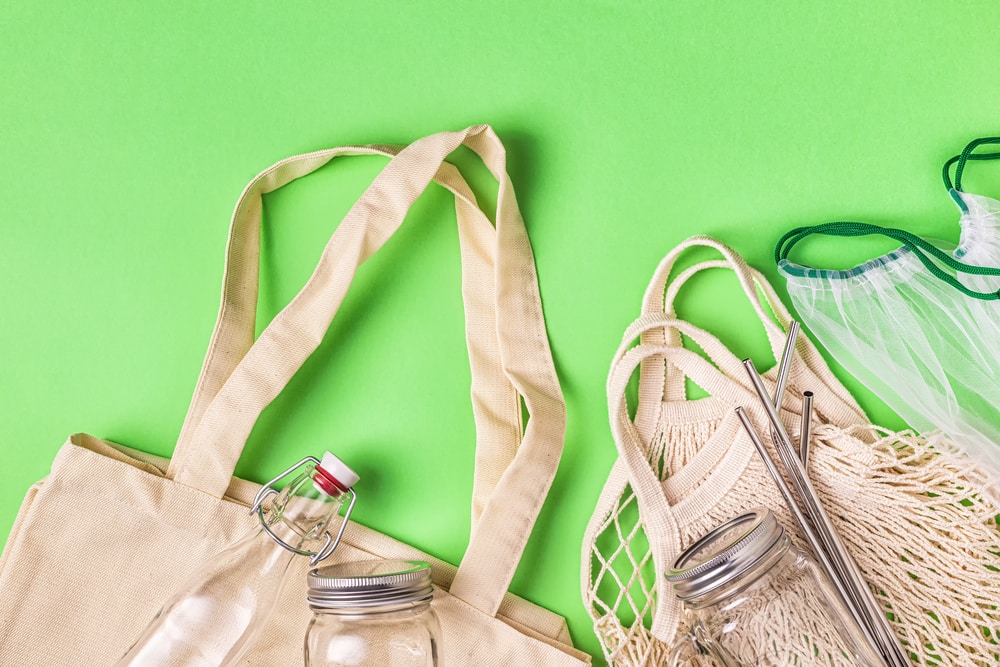
Make Plastic-free Groceries a Thing of the Past with These Shopping Essentials
Ditch the plastic and welcome a sustainable revolution in your grocery shopping routine with some great essentials that are made to last. Making plastic-free groceries a thing of the past shouldn’t be a dream but a reality for everyone.
To minimize your carbon footprint, you’ll need a few key items for your first plastic-free grocery trip. Here are my top recommendations. Aim for natural fibers like these cotton totes or sturdy hemp grocery bags.
- Reusable produce bags
- Reusable grocery totes
- Jars or containers with tare weight noted.
- Insulated grocery tote like the one below.
Each item should encourage minimal waste and maximum impact, from durable produce bags that keep your fruits and veggies fresh to beeswax wraps that say goodbye to cling film for good. Consider stainless steel containers and glass jars to make bulk buying a breeze, eliminating the need for single-use packaging and helping you lead the charge against plastic pollution.
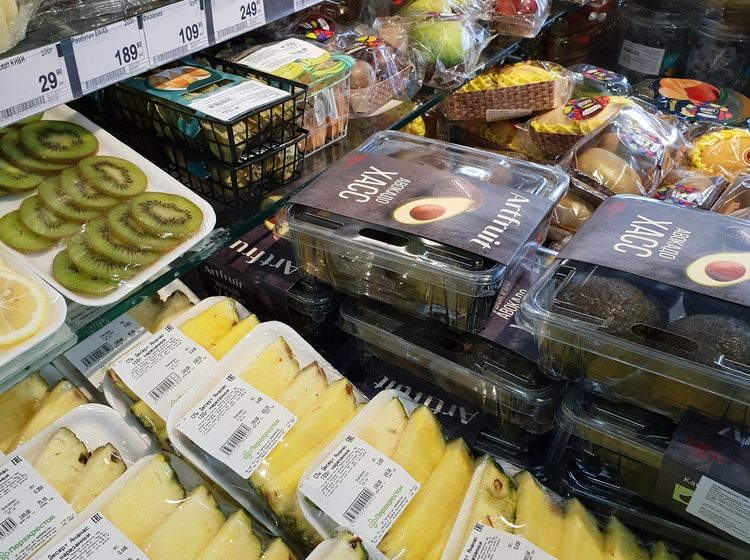
Tips for Shopping for Plastic-Free Groceries
Getting zero-waste grocery shopping down can be tricky. There are just so many products packaged in plastic! We’ve broken down some of our best tips for going plastic-free at home.
1) Don’t worry about it. It’s impossible to go 100% plastic-free, but there are many ways to reduce your consumption without feeling like you need a Ph.D. in alternative packaging options.
2) Carry a reusable bag: You never know when you might find yourself wanting (or needing!) more veggies or fruit than what’s currently in your fridge, and if that happens, a fresh, unwrapped apple can come in pretty handy! Be on the lookout for greenwashing. Some companies use manipulative marketing to scam buyers into buying “eco-friendly products” that aren’t eco-friendly.
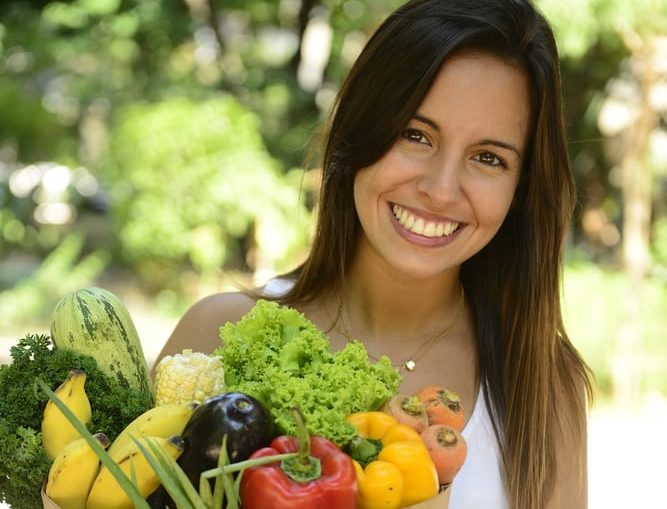
Plastic-free Produce isn’t just for Plastic-Free July!
Practice minimalist living when you are buying food. Please keep it simple, fresh, and waste-free as often as possible.
Whether you buy your produce from a local farmers’ market or a chain supermarket, it is best to purchase fruits and vegetables grown or produced locally.
Produce shipped in from out of state or country often comes in plastic packaging that can be difficult to recycle properly. Choose locally-grown produce whenever possible to ensure you’re reducing your environmental impact.
Another reason to buy locally grown produce is that it helps you to eat in season. Eating foods that are in season is important. Not only do you get the maximum nutrients during peak season, but the flavors are also at their best.
Foods sold out of season are picked too soon, stored for longer periods, and shipped longer distances. Choosing foods grown locally and eating them in season is a big part of sustainable living.
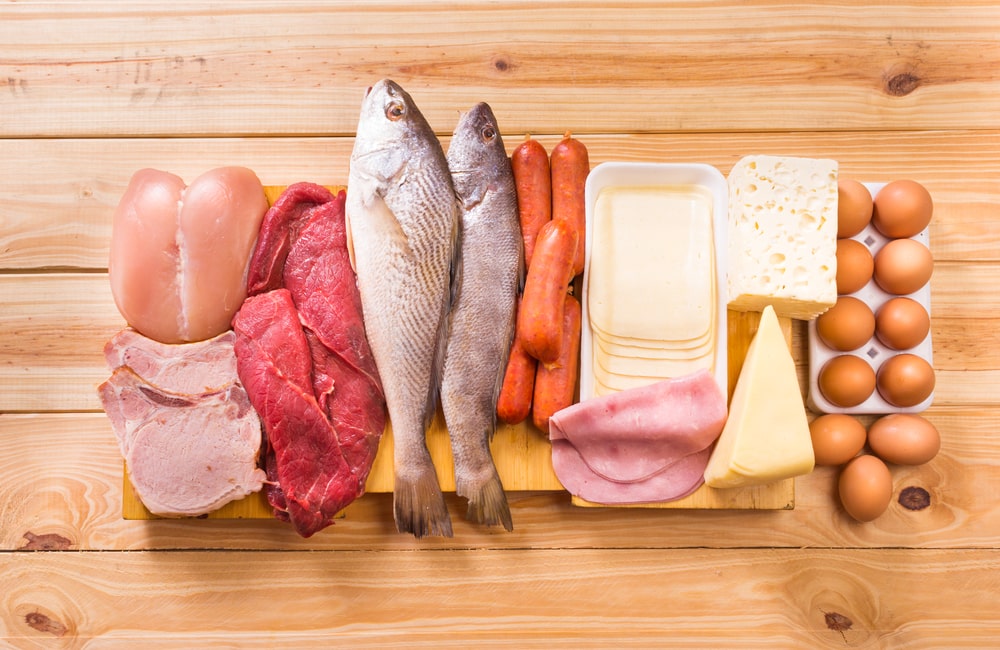
Source Plastic-free Meats and Seafood
Don’t be scared of fish and seafood—buy them frozen! It’s cheaper, better for you, and often better quality. When buying fish at a grocery store, it will often be served on a Styrofoam tray with plastic wrap around it.
Instead of buying fish like that (especially if you aren’t eating it right away), ask if they have any already cleaned. If they don’t, you can tell them what you are looking for (say sole or cod) and ask if there is any way they could save it for you wrapped in butcher paper or even tin foil.
Most local grocery stores have fresh, locally caught fish at the butcher’s counter. More grocers are also beginning to look to local farmers for pastured meats, eggs, and cheeses. I recommend asking the butcher and produce managers for these items if your store doesn’t have these options.
The demand for fresh and local foods will benefit the community and farm families. It is a win-win!
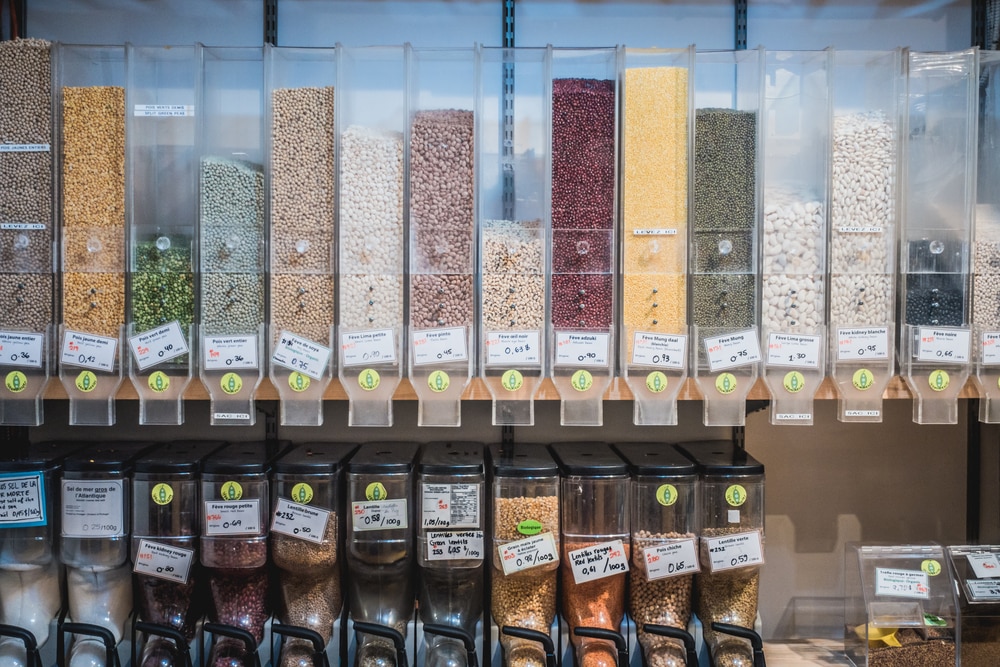
Buy Plastic-free Groceries in Bulk to Save Money
Bulk grocery shopping is a great way to reduce plastic waste and get your grocery fix for less. If you can’t find a store that offers bulk items, try buying online. For example, Sun Organic Farm is one of many companies offering gluten-free, organic ingredients in bulk.
While it may take time to buy more at once—you’ll have to portion them out into smaller containers—and they may not be as fresh as regular food items (bulk foods often aren’t refrigerated), it’s still good for your food budget and better for your wallet!
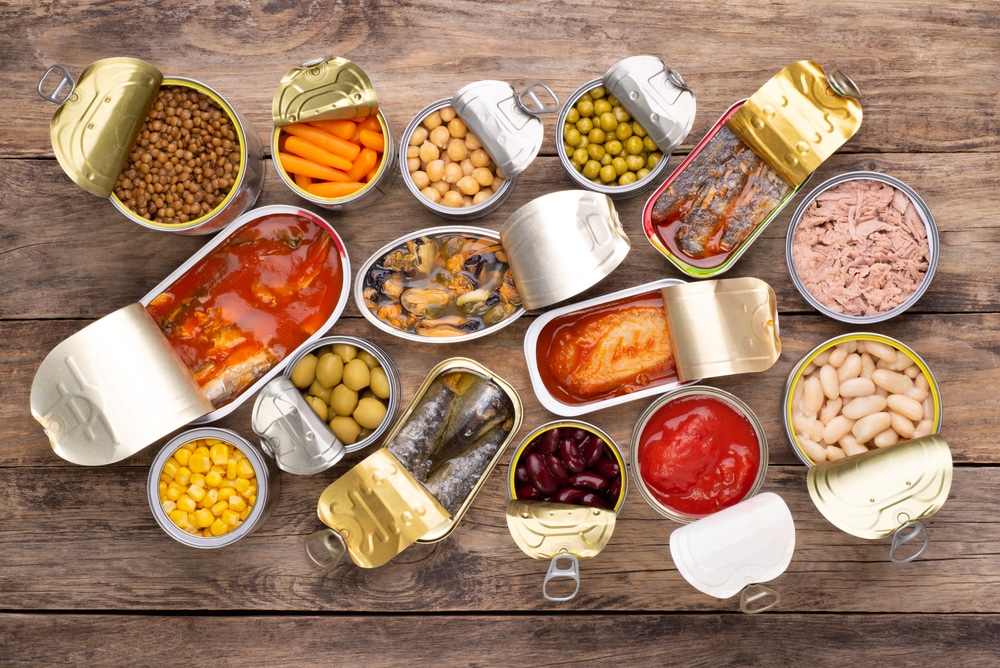
But, What about Plastic-free Packaged Foods?
It is hard to pass up on processed and packaged foods 100% of the time. However, plastic-free shopping will help you resist consuming many unhealthy processed foods. Here are some tips for shopping for plastic-free packaged products:
Look for snacks, pasta, eggs, butter, etc., packaged in cardboard without plastic windows or liners. Opt for cans instead of plastic and cardboard boxes instead of cans for tomatoes, soups, etc. Choose glass jars of sauces and condiments over their plastic-bottled competitors.
These tips will help you choose better quality foods, leading to a healthier, happier you!
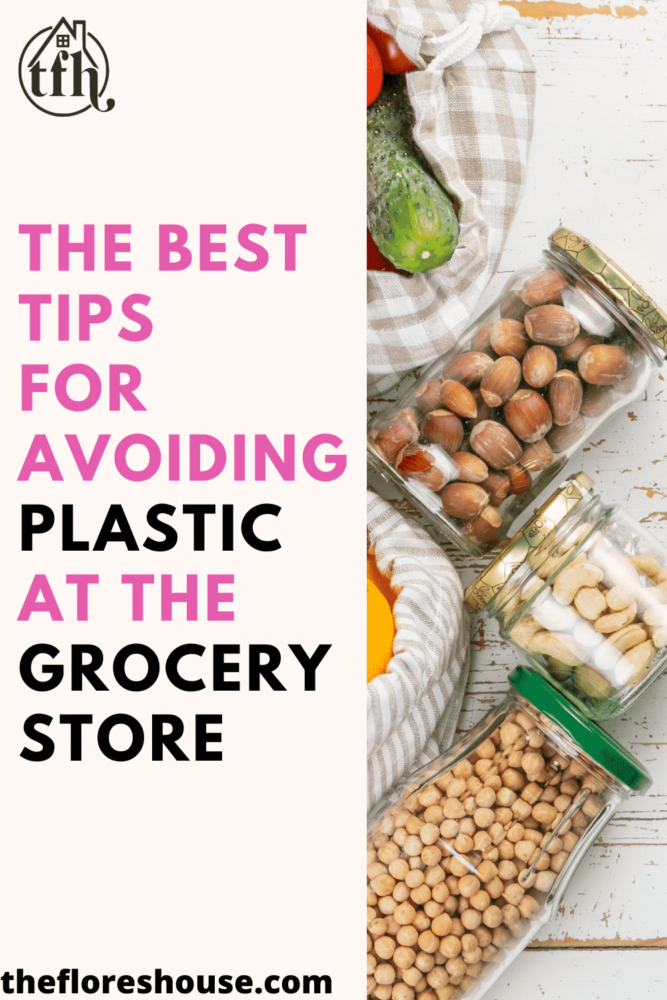
Try This Healthy Grocery List to Cut Back on Plastic Waste:
This is a great go-to list for weekly grocery shopping. You will find that shopping with this list will stock your kitchen with everything you need to cook nutrient-dense meals every day of the week.
Whether you are a minimalist cook or enjoy fancier dinners, there are many options for meals with these basic, nutritious ingredients. Try to choose a variety of vegetables and fruits from week to week.
Do your best to buy organic, seasonal produce whenever possible. If you buy in bulk, this weekly grocery list will be shorter!
- Organic Red Potatoes
- Organic sweet potatoes
- red, white, and yellow onions
- Garlic
- Greens: Kale, herbs, Spinach, Romaine, Avocados, Asparagus, Broccoli
- Reds: peppers, beets, pomegranate, strawberries, raspberries,
- Oranges: carrots, peppers, peaches,
- Blues and Purples: berries, grapes, blackberries, purple potatoes
- Citrus fruits: Lemon, Limes, Oranges, Grapefruits
- Mushrooms
- We buy fresh fish and pastured chicken locally at Fuster Cluck Farm in North Carolina!
- Beans, Rice, Quinoa, Popcorn
- Nuts, seeds, dried fruits
- Extra Virgin Olive Oil, Coconut oil, Spices and Herbs
- Canned Tomatoes
- Gluten-free Pasta
- Plant-based Milk or nuts to prepare your own
This post was about making less waste and shopping plastic-free at the grocery store!

